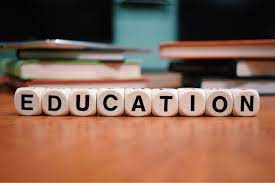what is education?
Education is the process of learning or acquiring knowledge, skills, values, beliefs and habits. Scholars in the field of education study various aspects of the educational process, including curriculum development, instructional methods, assessment techniques, and the impact of education on individuals and society. Education can be formal or informal, and can take place in a variety of settings, such as schools, homes, and communities. Scholars may also study how education is influenced by factors such as culture, socioeconomic status, and technology.
It can also be delivered through various means, such as traditional classroom instruction, online learning, and on-the-job training. Education is widely acknowledged as a key driver of personal, social and economic development and it's the key to a better future for individuals and society.
Definition of education by different authors
Plato, a ancient Greek philosopher, believed that education was a process of bringing knowledge and understanding out of the soul, which he believed was innate and pre-existing. In his book "The Republic," Plato outlined his ideas on the nature of education and its role in society. He believed that education was necessary to develop the intellectual, moral, and physical abilities of individuals in order to create a just and harmonious society. He proposed a system of education that would be based on the study of mathematics and the natural sciences, as well as music and physical education, to develop the mind and body. Additionally, he believed that education should be directed towards the development of virtue and the cultivation of wisdom.
Jean Piaget, a Swiss developmental psychologist, believed that education should be based on the cognitive development of the child. He proposed that children actively construct their own understanding of the world through a process of assimilation and accommodation
He proposed that children go through four distinct stages of cognitive development:
-The sensorimotor stage (birth to 2 years) where children learn through their senses and motor abilities.
-The preoperational stage (2 to 7 years) where children develop symbolic thinking and language.
-The concrete operational stage (7 to 12 years) where children develop logical thinking and the ability to understand cause and effect.
-The formal operational stage (12 years and up) where children develop abstract reasoning and the ability to think logically about hypothetical concepts.
According to Piaget, education should be tailored to the child's current stage of cognitive development and should encourage active exploration and hands-on learning. He believed that children should be encouraged to discover and construct their own understanding of the world, rather than being passively taught information.
B.F. Skinner, an American psychologist, believed in the theory of behaviorism, which emphasizes that behavior is shaped by reinforcement and punishment. In his view, education should be based on the principles of operant conditioning, which states that behavior is influenced by the consequences that follow it.
He proposed that education should focus on the use of positive reinforcement to shape and maintain desired behavior, and that instruction should be broken down into small, manageable steps. He also suggested the use of teaching machines and programmed instruction to provide students with immediate feedback and reinforcement for correct responses.
Skinner believed that the role of the teacher should be to design and implement a system of rewards and consequences that would shape the student's behavior in a positive way. He also believed that the curriculum should be relevant and practical, and that the student's progress should be continuously monitored and evaluated.
In summary, B.F. Skinner's definition of education emphasized that education is the process of learning through positive reinforcement and shaping of behavior through a system of rewards and consequences.
Education is widely considered as important for both individual and societal development. Here are a few key reasons why education is important:
Personal development: Education helps individuals acquire knowledge, skills, and values that can lead to personal growth and development. It can also increase self-awareness, self-esteem, and self-worth.
Economic development: Education is closely linked to economic development. It can lead to better employment opportunities and higher earning potential, which in turn can help reduce poverty and increase economic growth
Social development: Education can promote social cohesion and reduce social inequalities. It can also lead to greater social mobility, and increased civic engagement and participation.
Political development: Education can promote political stability and democracy by fostering critical thinking, informed decision making, and responsible citizenship.
Cultural development: Education can promote cultural development by providing individuals with an understanding and appreciation of different cultures, and by preserving and promoting cultural heritage.
Human rights: Education is considered as a fundamental human right. It is essential for the exercise of all other human rights and for the full development of the human personality.
Education is an essential tool that enables people to better understand the world around them and to improve their lives, and the lives of those around them.
-Rasima.bf (BA)



Comments
Post a Comment